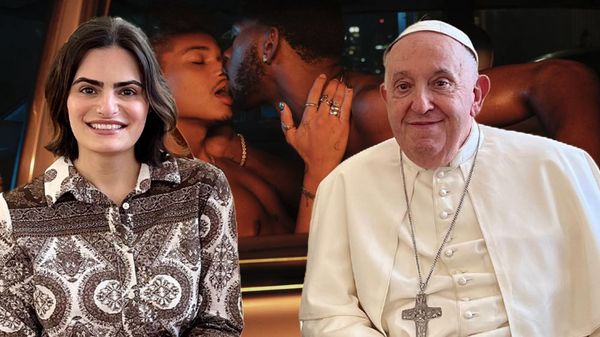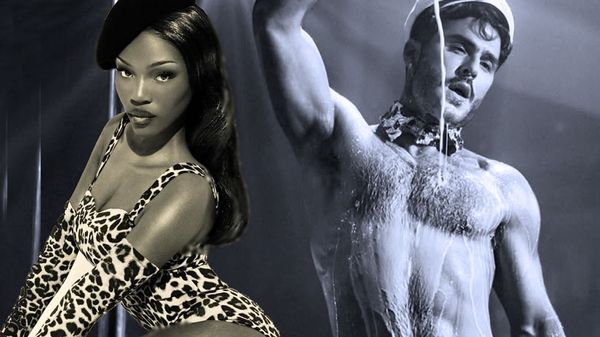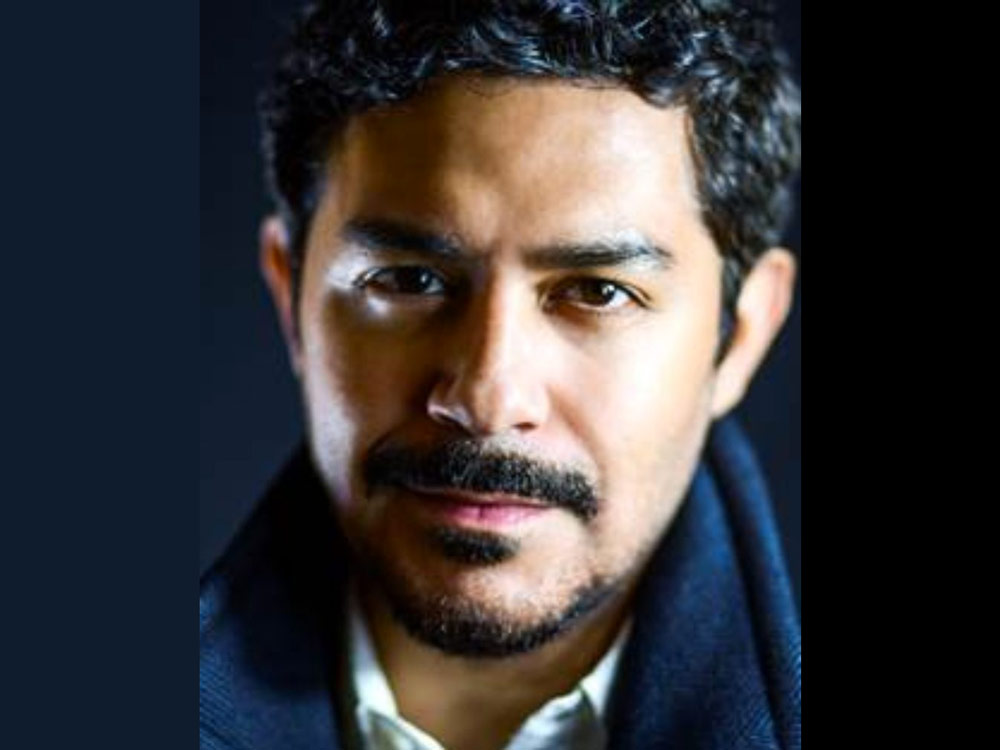
September 22, 2022
A Backwards 'Bohème?' Tenor Jesus Garcia Talks of Adventurous Production's Challenges
Steve Duffy READ TIME: 7 MIN.
"La Bohème" remains the saddest of operas. Spoiler alert: Mimi dies of tuberculosis at its end. But imagine it with a happy ending? No, she doesn't return from the brink as she does in "Rent," the musical based on the opera; instead, director Yuval Sharon, who, as the head of the Detroit Opera has staged productions in parking garages and railway stations, tells the story backward, going from Mimi's death to the moment she famously meets Rodolfo in his Paris garret on Christmas Eve.
His staging comes to the Boston Lyric Opera for a two weekend run (September 23-25 and September 30 to October 2) in a co-production by the BLO, the Detroit Opera and the Spoleto Festival. It premiered earlier this year in Detroit before going to the South Carolina music festival.
Sharon introduces a new character, called The Wanderer, who helps guide the audience through the flashback technique; and tells the story without an intermission. The idea for the production came to Sharon while he was having a conversation with BLO Artistic Advisor and stage designer John Conklin some 12 years ago; the idea stuck with the director, and he was able to bring it life earlier this year in Detroit, then the Spoleto Festival. For the next two weekends, the Boston Lyric Opera presents the production at the Colonial Theatre. (For more information, follow this link.)
Appearing as the poet Rudolfo is Jesus Garcia, who has played the role in a 2015 production with the BLO, but never one as adventurous as this. He also appeared with the company as Count Almaviva in Rosetta Cucchi's production of "The Barber of Seville" in 2018. The Boston Globe said of his performance, "Jesus Garcia was on fire from the beginning, unleashing beautifully ardent paeans to Rosina in his elegant voice and throwing himself wholly into his various disguises as drunken soldier and obsequious music teacher."
EDGE spoke to the young tenor recently about his love of opera, the unusual nature of this production, and the good advice he picked up from Coco Chanel.
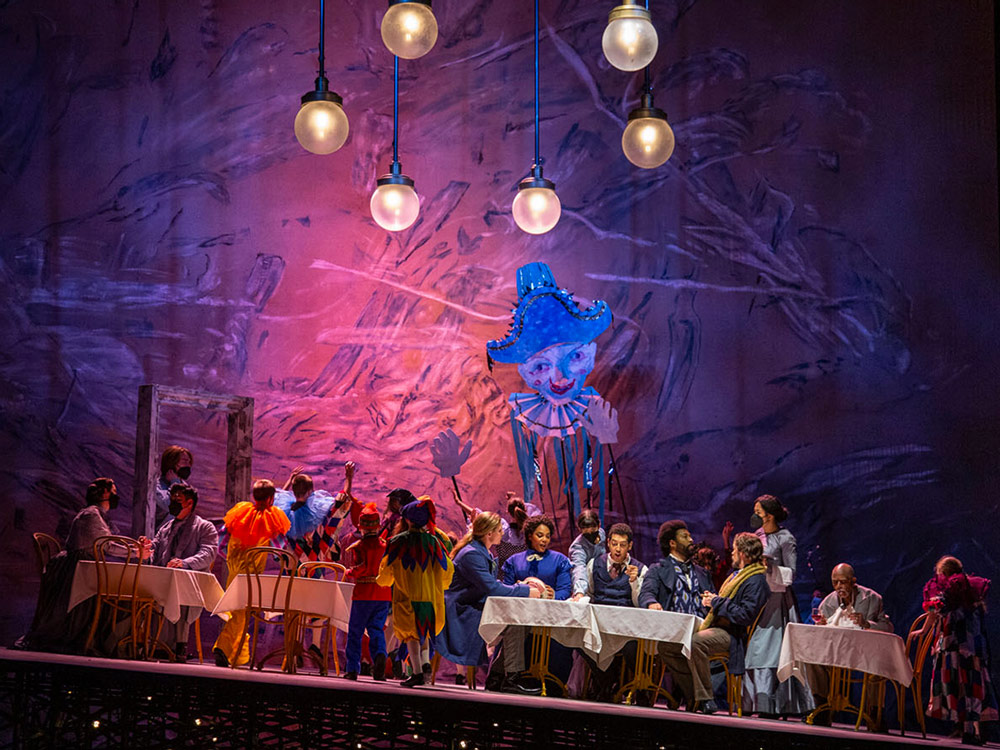
EDGE: What first sparked your love of opera?
Jesus Garcia: I had a love of classical music before I started loving opera. I went to school in Texas and ended up in a really great school district that had great arts funding. Once I got into high school, my music taste turned to classical. I didn't really get exposed to opera until after I graduated high school. I went to the movies and saw "Philadelphia" starring Tom Hanks and Denzel Washington. The scene where he is dying and he's listening to "La Mamma Morta" sung by Maria Callas. I was mesmerized by just the breadth and depth of emotion of the song. She sings it with an unbridled and animalistic passion that captured me and wouldn't let me go. I was like, "Whoa, if this is what opera does, I want in."
EDGE: You've specialize in the romantic roles of the French and Italian repertoires. What is it about these that lights your fire?
Jesus Garcia: To tell you the truth, singers don't always get to choose what they specialize in because you have to kind of go where the voice is appropriate. I'm kind of lucky that I actually get to sing most of the roles that I really love. One day, I would love to step into the more heroic roles, but my voice much more lends itself to romantic repertoire. I really like the writings of Verdi, and I really love Bellini. I just love the passion and romanticism of the music. I am really into Tchaikovsky. I think that his work is just the epitome of romantic music.
EDGE: You previously sang in a production of "La Bohème," but that was done conventionally. This one takes a radical approach – telling the story backwards. What are you looking forward to in this production?
Jesus Garcia: I'm really interested to know what doing the show backwards will feel like once we start running it. Puccini is known as a composer who really knew the voice. He knows how to write for singers. He knew how to pace a singer throughout an evening, so that you get the right amount of rest before you have to sing something big. His music is written in a way to ensure that you're not absolutely dead by the end of the show.
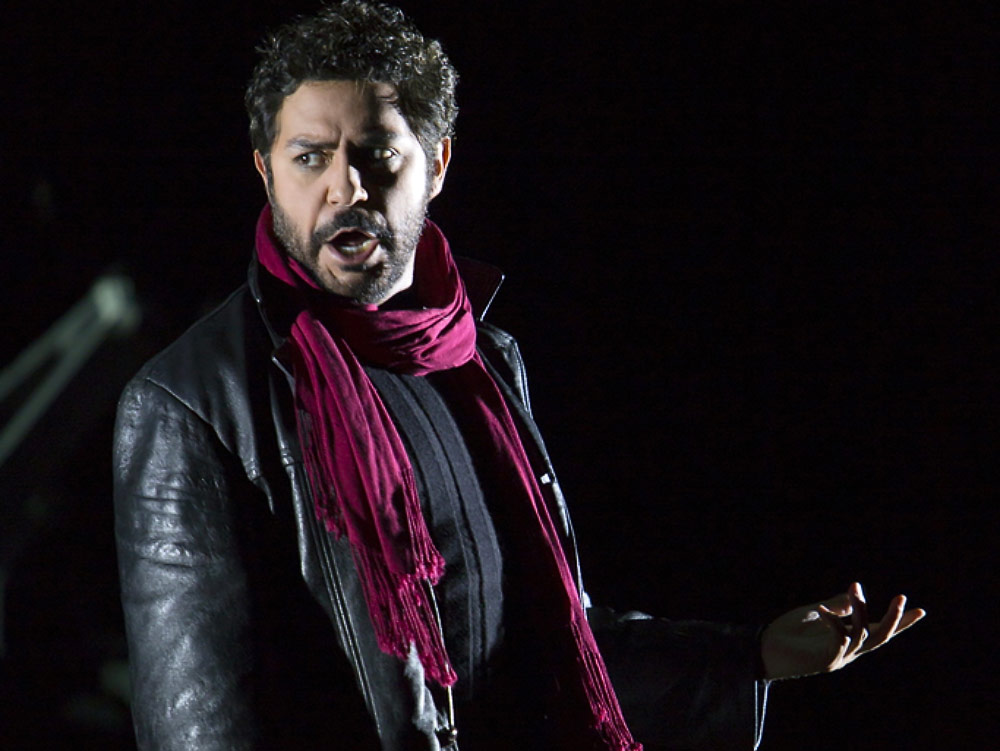
EDGE: What do you love about playing Rodolfo?
Jesus Garcia: I always remind myself that, when I was a young singer, this was one of my dream roles. Now that I've done it a few times, I keep trying to find ideas to keep the role fresh and not burdensome. So, when I come back to Rodolfo, I try and just dig into him psychologically a little bit deeper. I will have conversations with my colleagues and with the director and try and find new ways to approach him and keep the role new and exciting.
EDGE: Is "La Bohème" difficult for your voice?
Jesus Garcia: I did coach it a bit before I came here, and I made sure at the end of each coaching, which is an hour and a half, that I could sing the aria. I have trained, but it's a different animal when you're singing on stage with an orchestra. I try and give myself the grace to just let whatever happens, happen. It's live theater. There's no way I'm going to go out there and not give it my best.
EDGE: When you are singing on stage, do you hear your voice come back to you?
Jesus Garcia: Yes, if it's a good house and you're lucky. There are some theaters that just don't have the acoustics. In some theaters, you don't hear anything. It can feel like you're singing into the void, which can be really disconcerting for a lot of singers. I can say that every theater in Boston that I've sung in, they all have fantastic acoustics.
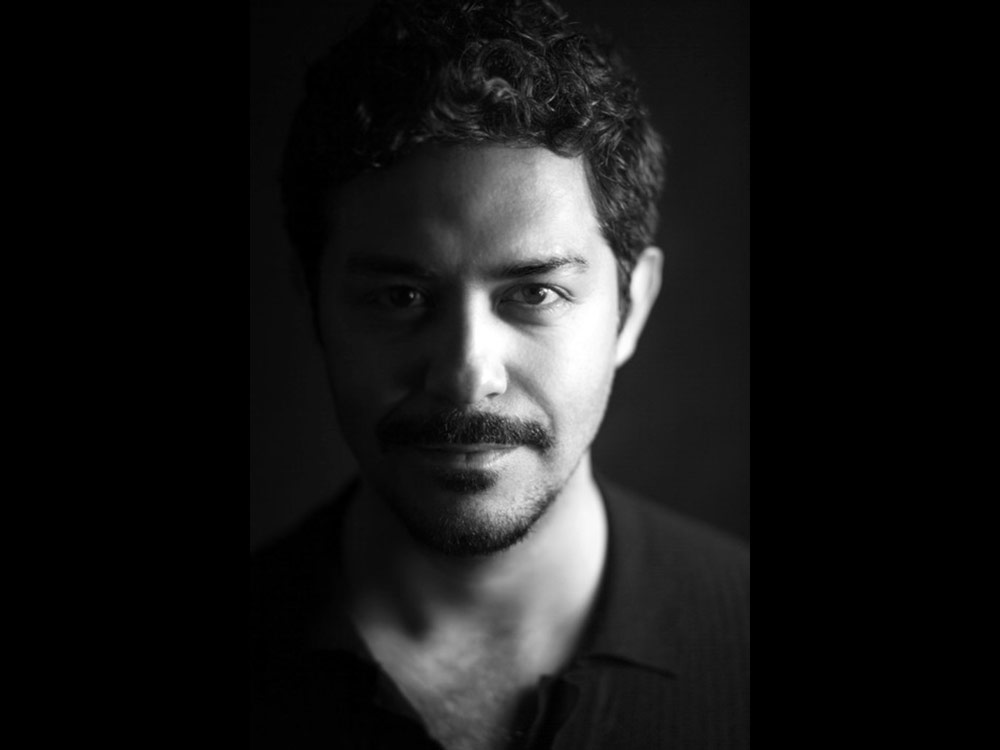
EDGE: Does this version of the story change to be able to do the show in reverse?
Jesus Garcia: No, it doesn't really change. I think some of the motivations might change a little bit. It's not a surprise to the audience that we're presenting it in reverse. It's very much a deal that is made with the audience right at the beginning of the show. There is an added role called "The Wanderer" who has some spoken dialogue and acts as the narrator to guide the audience through this re-telling. It's not's not a different story, it's just told in a different order.
EDGE: What do you think makes this particular opera so beloved?
Jesus Garcia: It's the music! There's a lot of great love stories out there, but I think the thing that has made "La Bohème" eternal is how great the music is. Whatever the process Puccini went through in his mind writing it, I would love to know. Just like Coco Chanel said, "Before you leave the house, look in the mirror and take at least one thing off." Don't over-accessorize; you have to edit. I think Puccini went through the same process when he wrote this opera. He did a great job editing it down to its very essence, and there's no fluff in it. It's all substance, and it takes you on a great journey.
EDGE: What do you hope audiences get out of this version of "La Bohème?"
Jesus Garcia: I hope they'll take away the realization that there are young and vibrant people of vision who are starting to take roles in the dispensation, the production, and the administration of opera. They are looking towards the future and are looking for new ways to tell old stories. I just hope that the takeaway is seeing the experimentation that opera is doing. I think that that's what opera needs now is to experiment more. That is the future of opera – to take the palette we've been given and make new paintings.
For more information on the Boston Lyric Opera and to purchase tickets to see "La Bohème" at the Emerson Colonial Theatre, visit the Boston Lyric Opera website.
Performances are Friday, September 23, 2022, 7:30PM; Sunday, September 25, 2022, 3PM; Friday, September 30, 2022 7:30PM; Sunday, October 2, 2022 | 3PM. Running time: Approximate running time: 100 minutes Sung in Italian with English surtitles.





